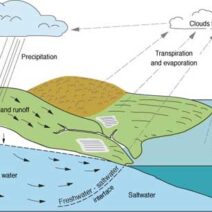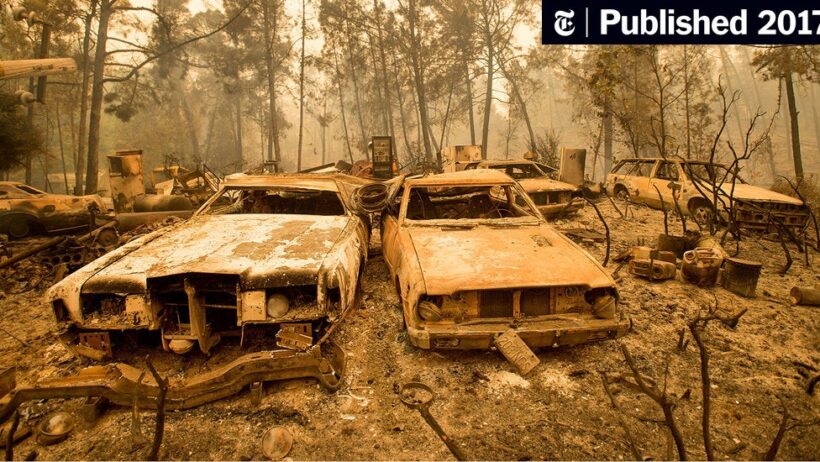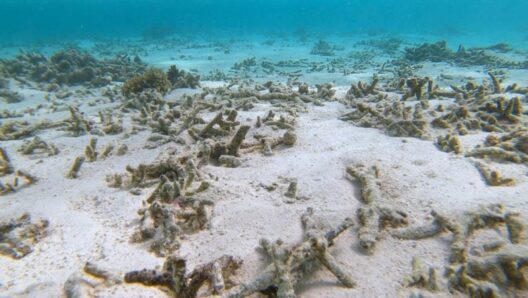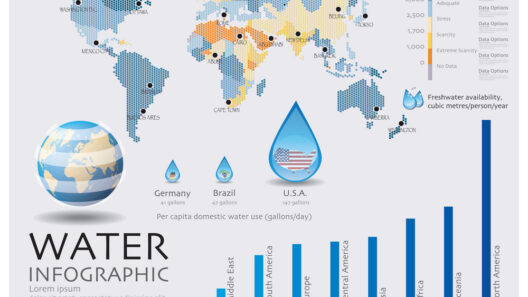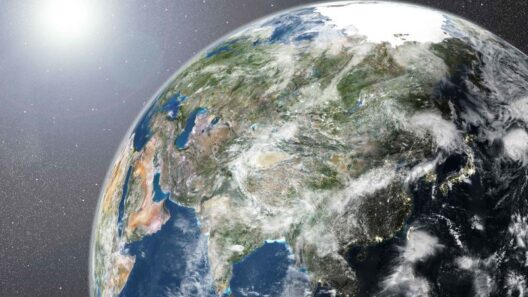The tumultuous landscape of American politics during the year 2017 marked a crucial inflection point in the discourse surrounding global warming. At the epicenter of this conversation was none other than former President Donald Trump, an enigmatic figure whose perspectives oscillated wildly, leaving many to ponder whether any lucidity existed within his understanding of climate change. A retrospective examination of his stance during this pivotal year unfolds a narrative rife with contradictions, lack of clarity, and a manifestation of skepticism resembling a churning tempest.
Trump’s initial foray into the realm of climate science was characterized by a straightforward dismissal of well-established scientific consensus. Throughout his campaign leading up to the presidency, he espoused a belief that climate change was a “hoax” perpetuated by the Chinese, a remark that set the stage for a perpetual fog that clouded his policy decisions. This declaration transcended mere rhetoric; it established a broader theme of skepticism that would reverberate through his administration’s approach to environmental regulations.
As 2017 unfolded, Trump’s relationship with climate science became increasingly antagonistic. The administration boldly set forth on a path to dismantle the Clean Power Plan, an emblematic initiative aimed at reducing carbon emissions in the energy sector. This decision, akin to cutting the strings binding a marionette, liberated the fossil fuel industry and propelled it into a, seemingly, unbridled era of expansion and exploitation. Critics observed that this retreat from regulatory responsibility could unleash torrents of pollution, reminiscent of an uncaged beast wreaking havoc across the land.
Yet, even within this overarching narrative of defiance, an undercurrent of confusion persisted. Trump’s purported stance on global warming fluctuated; he would oscillate from acknowledgment of climate change during isolated instances to outright denial. His pivot at various moments during 2017 could be likened to a ship caught in shifting winds, sometimes sailing toward acknowledgment but often veering off course into waters of doubt. This inconsistency bewildered both supporters and critics alike, leading many to question the genuine depth of his understanding.
One of the most pivotal moments in this saga surfaced with Trump’s decision to withdraw the United States from the Paris Agreement in June 2017. This action resonated across the globe like a seismic shift, sending shockwaves through international climate diplomacy and igniting fervent debates about America’s role in global climate efforts. The Paris Agreement, a collective endeavor to combat climate change and limit global warming to well below 2 degrees Celsius, symbolized a cooperative spirit among nations. Trump’s exit felt akin to a lighthouse extinguishing its beacon in a dark, stormy sea, leaving many nations adrift in uncertainty.
However, Trump’s retreat signified more than mere political posturing; it illuminated a fundamental philosophical schism regarding the nature of climate change. To many, his rejection of collective action highlighted a proclivity toward isolationism—an ideological standpoint that runs counter to the intrinsic interconnectedness of environmental issues. Environmental challenges transcend borders, yet Trump’s actions reflect a narrow lens on a global crisis. This troubling perspective could compel one to question whether he ever truly comprehended the magnitude of a warming planet.
As discussions about climate change permeated public consciousness, the effects of global warming became increasingly conspicuous. Wildfires raged across the western United States, hurricanes wreaked havoc in the summer months, and catastrophic flooding ensued in various locales. Each calamity spoke volumes, yet the response from the Trump administration often evinced a disconcerting detachment. When confronted with these environmental emergencies, there seemed to be a reluctance to connect the dots between these devastating phenomena and the broader implications of climate change. It was as if disparate pieces of a jigsaw puzzle lay strewn across a table, yet the image they collectively portrayed remained frustratingly obscured.
Moreover, Trump’s ongoing alliances with fossil fuel conglomerates served to reinforce the notion that economic interests often eclipsed environmental priorities. The administration’s fervent promotion of coal, oil, and gas mirrored a jarring dissonance with burgeoning renewable energy sectors—industries poised not only to mitigate climate change but also to drive economic growth. This ideological rift underscored a preference for the status quo, perpetuating the belief that environmental concerns could conveniently linger in the periphery, awaiting future consideration.
Throughout 2017, Trump’s engagement—or lack thereof—with the scientific community was equally telling. While he occasionally assembled his advisors, his fluctuating opinions seemed largely guided by external pressures rather than a solid philosophical foundation rooted in scientific understanding. His infamous decision to host the U.S. withdrawal announcement in the Rose Garden, punctuated by stark proclamations of opportunism, cast a long shadow over the voices of climate scientists whose warnings were often drowned out by the clamor of political contention. The cacophony created by such actions left critical questions unanswered: Did Trump ever genuinely grasp the urgency of the climate crisis? Or was it simply relegated to a sidebar in the grand narrative of his presidency?
The overall tapestry of Trump’s climate rhetoric during 2017 reflects an amalgamation of confusion, denial, and reactive policy shifts. While the backdrop painted a grim picture of regression in the face of an impending crisis, the engagement of activists, scientists, and concerned citizens only intensified. The grassroots movements that burgeoned in response to his administration’s actions highlighted an unyielding commitment to environmental stewardship—an antidote to a pervasive sense of despair. Ultimately, the question remains: Did Trump ever comprehend the gravity of global warming? While his administration’s actions painted a bleak portrait, the intricate dance of skepticism, confusion, and resistance left many yearning for clarity—a yearning for a future where understanding paves the way for action, rather than obfuscation.
